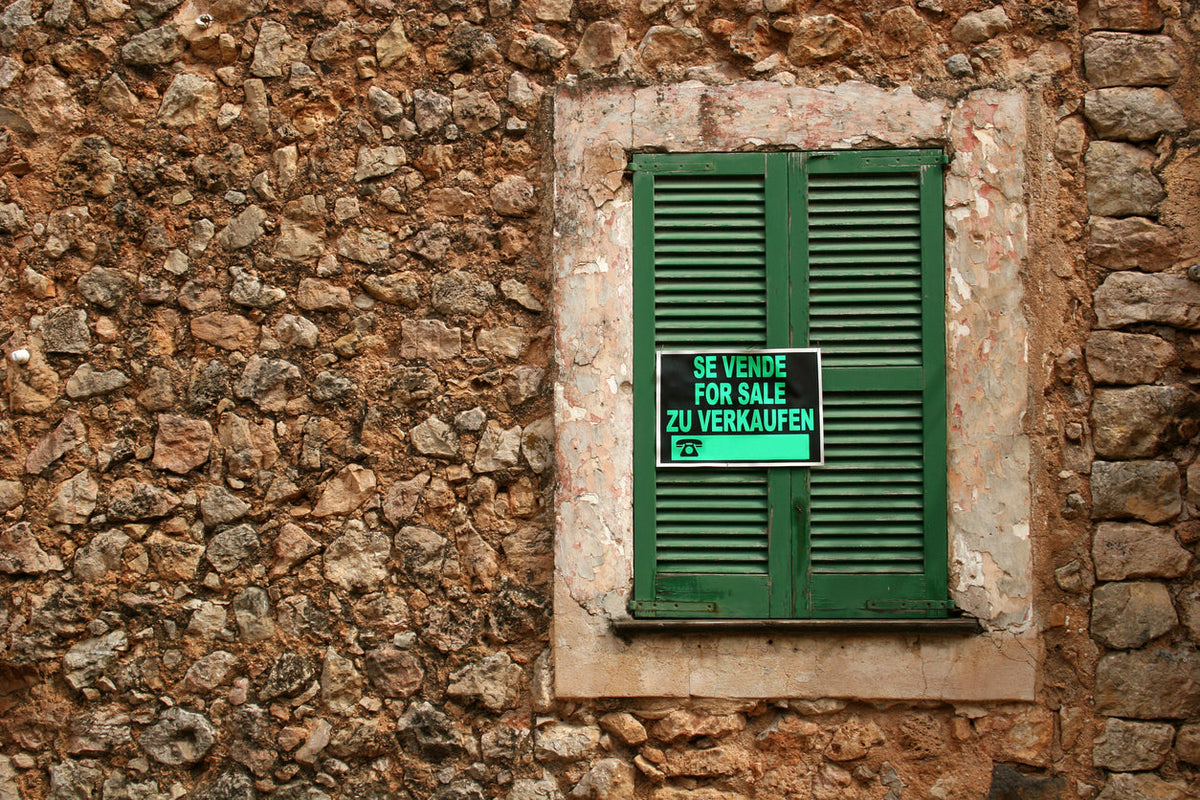
Selling Property in Spain: Process, Taxes & Expert Tips (2025 Update)
|
|
Time to read: 4 min
|
|
Time to read: 4 min
Spain is a dream destination for many looking to relocate, retire, or invest in Mediterranean living. But there’s another side to the property market—thousands of homeowners are offering their homes for sale every year.
Reasons vary: moving to another town or country, buying a second home, or financial challenges like mortgage repayments.
In fact, the Costa del Sol alone shows:
Over 35,000 properties for sale via Idealista
Around 25,000 listings on thinkSPAIN
If you're planning to sell, it's essential to understand the process, taxes and legal steps, and here's your trusted guide to help you do just that.
For many sellers, the process can feel complicated and overwhelming—especially if it's your first sale in Spain. But having a good understanding of the market and working with the right experts can save you headaches, avoid costly mistakes, and make the entire experience smoother.
On average, selling a property in Spain takes 3 to 6 months , depending on location, property type, and pricing strategy.
Here's a clear breakdown of the typical steps involved:
Appoint a professional real estate agent
Prepare required documents
Sign Reservation and Arras contract
Finalize the sale with a Notary (Deed transfer)
The paperwork for selling property in Spain can get much more complex depending on your individual situation—especially for expats, inherited properties, or homes with mortgages.
But no matter the case, these are the main documents every seller should be prepared to present:
Nota Simple (Land Registry extract)
Energy Performance Certificate
Latest IBI (property tax) receipt
Community fees certificate
Mortgage cancellation proof if needed
Taxes and selling costs in Spain can vary year by year, especially with changes to property laws or tax rates. Not all expenses are obvious—some sellers even pay for services that many trusted agencies offer for free.
That's why proper preparation and consulting a reliable advisor can save you time, stress, and unnecessary costs.
Here’s a breakdown of what to expect in 2025:
Capital Gains Tax (CGT) |
|
| Plusvalía Municipal Tax |
Paid on land value increase |
| Other Costs |
Legal fees, agent commission, mortgage cancellation fees |
Many sellers in Spain hire specialists to guide them—whether it's consultancy agencies, legal advisors, or experienced real estate agents. But when the seller is an expat, the percentage of people needing expert help significantly increases.
Here’s why: navigating Spain's legal process, tax system, and required paperwork can be confusing, especially for non-residents unfamiliar with local regulations. An advisor ensures your sale runs smoothly, avoids hidden costs, and protects your interests at every step.
To sum up:
Not mandatory but highly recommended
Lawyers ensure due diligence, clear debt status, and contract review
Trusted networks like SpainCheck connect sellers with proven agencies and legal experts
CGT (Capital Gains Tax) |
Tax on the profit from your property sale. Varies for residents and non-residents. |
| Arras Contract (Contrato de Arras) |
Legally binding deposit agreement. Buyer usually pays 10% upfront; both sides commit to the sale. |
Nota Simple |
Official extract from the Land Registry confirming property ownership and any debts. |
| Cooling-Off Period |
In Spain, this often applies before signing the Arras contract, but once signed, backing out has penalties. |
| Plusvalía Municipal Tax |
Local tax on the increase of land value since the property was purchased. |
IBI (Impuesto sobre Bienes Inmuebles) |
Annual municipal property tax paid by the owner. |
| Energy Performance Certificate (EPC) |
Required certificate showing the property’s energy efficiency rating. |
Title Deed (Título de Propiedad |
Legal document proving ownership, essential for selling. |
Completion Date (Fecha de Escritura) |
Day when the sale is finalized, payment is made, and keys are handed over at the Notary. |
Chain-Free Sale |
A sale where the seller isn’t relying on purchasing another property, common with investors or expats leaving Spain. |
The real estate market is like a clock—it never stops ticking. It’s in constant motion, with new developments, shifting prices, and huge potential for both buyers and sellers.
But let’s be honest, behind the sunny headlines, there are also many understones—legal steps, hidden costs, and complicated paperwork. That’s where having the right people by your side makes all the difference.
At SpainCheck , we connect you with trusted experts, proven agencies, and reliable services to make your property sale smooth and safe.
👉 Book your free consultation now at SpainCheck.com and let’s make your next move stress-free.
Yes, Spanish non-residents can sell their Spanish property without facing any legal restrictions. However, they must comply with the 3% withholding rule, whereby the buyer retains 3% of the sale price and sends it to the Spanish tax authorities as an advance capital gains tax (CGT) payment. You must then file a Modelo 210 declaration within four months to reconcile the payment or request a refund.
Over‑65 and selling your main home: full exemption if you’ve lived there for at least 3 years
Reinvestment in a new main home within 2 years: full or partial exemption
Double Tax Treaties: e.g., for US or UK sellers, to avoid double taxation
There is no double-selling restriction , but selling again within five years may affect exemptions if the new sale is of the same property type—relevant for capital gains profiling.
The Spanish Tax Agency is intensifying audits on non-residents—especially related to CGT, rental income, Plusvalía, and Wealth Tax iberiantax.com . Late or incorrect declarations can result in fines and interest.
Many reputable real estate agencies and networks offer free services upfront , including:
✅ Property valuation and price estimation
✅ Marketing your property on national and international portals
✅ Organising viewings and open houses
✅ Basic legal checks before listing
✅ Initial advice on market trends


